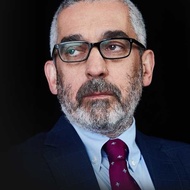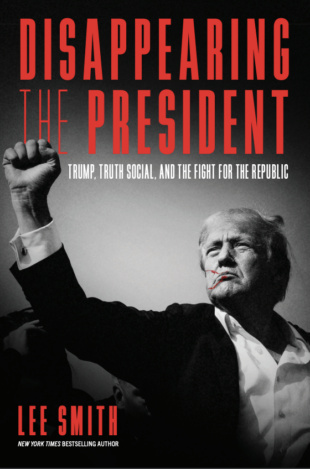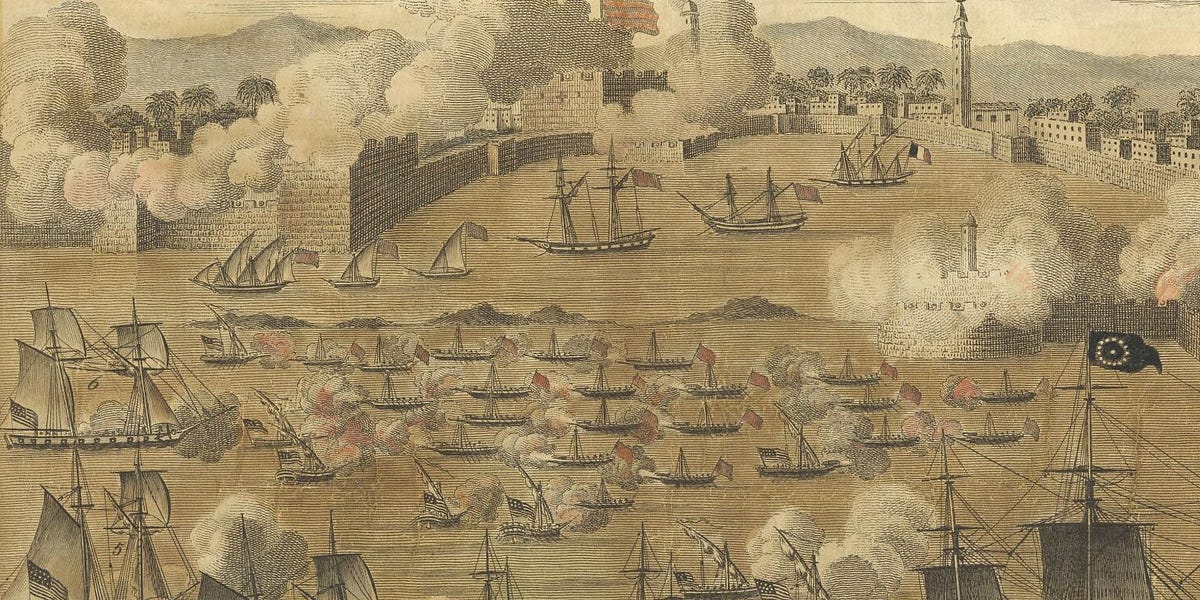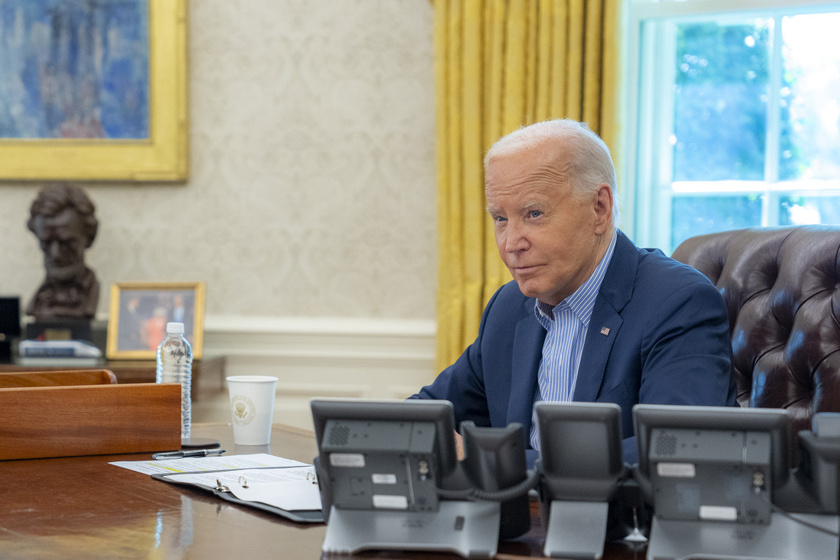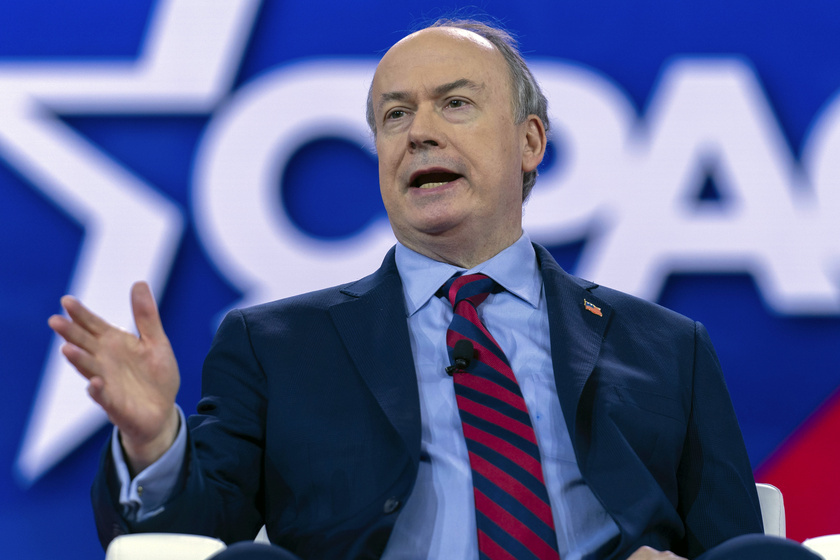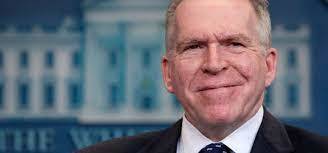
Reading through the newly released Durham Report, there’s a lot to absorb and I plan to be filling several reviews in the coming days. But it struck me that the section of the report detailing an aspect of John Brennan’s role in the Clinton campaign and Obama administration’s operation targeting Donald Trump and his aides was most urgent. LS.
The only genuine piece of Russian intelligence that US spy services ever received about Donald Trump’s ties to Russia was intelligence that Russia knew Hillary Clinton backed a 2016 campaign plan to smear Trump as a Russian agent.
According to John Durham’s 300-page report, the information reached the CIA in late July 2016. Brennan told Durham that on August 3 he briefed President Barack Obama at the White House on what the special counsel refers to as the Clinton Plan intelligence. Others in attendance at the meeting were Vice President Joe Biden, Attorney General Loretta Lynch, and FBI Director James Comey.
Imagine Comey’s reaction when he first heard of the Clinton Plan intelligence, only days after the July 31 start date for the FBI’s investigation into Trump’s alleged ties to Russia, code-named Crossfire Hurricane: So, if it’s just a dirty trick staged by the Clinton campaign, I should shut down the Trump-Russia probe, right?
Right. There is little chance Brennan said anything about the Clinton Plan intelligence in that August 3 meeting. Reading the Durham report, it’s not even clear when Brennan first found out about it or the September 2016 CIA memo referring the Clinton Plan intelligence to the FBI’s counterintelligence division.
Brennan’s handwritten notes memorializing his allegedly briefing Obama on the Clinton Plan and the CIA’s referral letter were both declassified by Trump’s Director of National Intelligence John Ratcliffe in October 2020. Durham’s report sheds light on how the information and subsequent CIA memo were received, who knew about them, and perhaps more significantly who didn’t.
According to the report, virtually none of the officials interviewed by Durham knew about the Clinton Plan intelligence or the referral memo. Former FBI general counsel James Baker “stated that he had neither seen nor heard of the Clinton Plan intelligence or the resulting Referral Memo prior to his interview” with Durham.
Same with Supervisory Special Agent-1, reportedly FBI agent Joe Pientka. According to the report, when Durham showed Pientka the information, he became “visibly upset and emotional, left the interview room with his counsel, and subsequently returned to state emphatically that he had never been apprised of the Clinton Plan intelligence and had never seen the aforementioned Referral Memo. Supervisory Special Agent-1 expressed a sense of betrayal that no one had informed him of the intelligence.”
The reason so few FBI officials knew of the Clinton Plan information is because it was buried. Otherwise, it would have implicated senior Obama officials — the president and vice president and his security chiefs — and the Crossfire Hurricane team in an illegal surveillance and propaganda operation targeting a presidential campaign.
But how did the Russians know it started with Hillary Clinton? Did they have spies buried deep inside the Democratic National Committee? Maybe Christopher Steele, British ex-spy and author of the Clinton-funded memos tying Trump to Russia, had been compromised by one of the Russian oligarchs he worked for?
No, you wouldn’t have needed an intelligence service to find out the Clinton campaign was using Moscow as an instrument to smear the GOP candidate. By the end of July, much of the anti-Trump campaign was public.
As I explained in my 2019 book The Plot Against the President, the media piece of Russiagate started in Winter 2016 when pro-Clinton reporters first started calling Trump and his aides Russian agents. With Franklin Foer’s July 4 Slatearticle, “Putin’s Puppet,” the press component of the Russia-collusion narrative was in full swing.
In a July 21 Washington Post column, Anne Applebaum cited Foer’s piece and asserted that “Russia is clearly participating in the Trump campaign.” In an Atlantic article published the same day, Jeffrey Goldberg wrote that Trump has chosen “to unmask himself as a de facto agent of Russian president Vladimir Putin.”
Before the end of July, scores of articles in the Weekly Standard, the New Yorker, New York Magazine, the New York Timesand elsewhere made the same case: Donald Trump, according to Times columnist Paul Krugman, was the “Siberian candidate.”
Russiagate reporters typically referenced each other's articles to create an unmistakable echo chamber effect. Media analysts at the Russian foreign ministry or in any Russian embassy couldn’t have missed the frequency with which the US press kept inserting their government into a vague account of the Republican candidate’s uncertain loyalties. Thus, it would not have been hard to figure out who was the beneficiary of this extraordinary amount of newsprint devoted to promoting a storyline labeling Trump a Russian agent.
The Durham report does not disclose how US intelligence agencies found out the Russians were discussing the Clinton Plan. Perhaps it came through the signals intelligence that British agencies and other foreign services reportedly shared with Washington.
On August 22, an FBI cyber-analyst passed the Clinton Plan intelligence on to two members of the Crossfire Hurricane team, including fixer Brian Auten. A 2019 Justice Department report faulted Auten for failing to verify the Clinton-funded Steele dossier tying Trump to Russia. In other words, he cleared the central piece of evidence, now thoroughly discredited, that the FBI used to obtain the warrant to spy on the Trump campaign.
On September 2, a US official briefed Auten and other FBI personnel about the Clinton Plan intelligence. Auten related to Durham that he told the official he wanted to see the CIA’s official referral letter. Completed September 7, the memo was addressed to Comey and FBI counterintelligence official and Crossfire Hurricane point-man Peter Strzok.
According to Durham: “None of the FBI personnel who agreed to be interviewed could specifically recall receiving this Referral Memo, nor did anyone recall the FBI doing anything in response to the Referral Memo.” Auten said that he couldn’t remember if he shared the memo with other members of the Crossfire Hurricane team.
If Brennan was briefed on it at the time, it seems he didn’t share it with anyone — he almost certainly had not spoken of it during the August 3 meeting with Obama and other administration officials. There’s no evidence that Brennan briefed congressional oversight committees on what US agencies had picked up from the Russians on the Clinton Plan. Nor did he say anything about it when he testified before the House Intelligence Committee in May 2017.
Most significantly, it’s not part of the intelligence that was used to produce the January 2017 intelligence community assessment on Russian interference in the 2016 election that Obama directed Brennan to finish before Trump came to office. Indeed, the Clinton Plan intelligence would serve as a powerful rebuttal to the ICA’s central conclusion that Putin sought to help Trump win the 2016 election.
Evidence of Brennan’s hiding the Clinton Plan intelligence and CIA referral letter would strongly suggest that he was a crucial part of the effort to target Trump as a Russian agent.
Perhaps it was rumor of Pientka’s rage after Durham showed him the Clinton Plan intelligence and the referral memo in a July 22, 2020 interview that Brennan moved to protect himself. It was nearly a month later, August 21, when he sat for an eight-hour long interview with Durham. Brennan said that he couldn’t remember when he first received the Clinton Plan intelligence but there was evidence that he didn’t hide it — handwritten notes proving that he told Obama, Biden, Lynch and Comey all about it.
Durham states in his report that he declined to pursue a criminal case related to the Clinton Plan intelligence because it “would face what in all likelihood would be insurmountable classification issues given the highly sensitive nature of the information itself.”
And thus, the section on the Clinton Plan intelligence concludes: the government’s treatment of the information “may have amounted to a significant intelligence failure and a troubling instance in which confirmation bias and a tunnel-vision pursuit of investigative ends may have caused government personnel to fail to appreciate the extent to which uncorroborated reporting funded by an opposing political campaign was intended to influence rather than inform the FBI. It did not, all things considered, however, amount to a provable criminal offense.”
